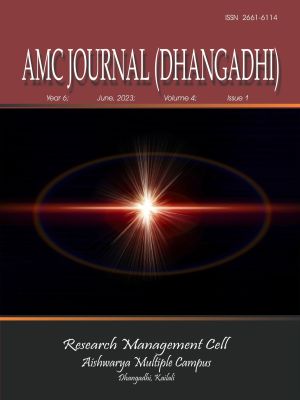Eight Moments in the History of Qualitative Research
DOI:
https://doi.org/10.3126/amcjd.v4i1.58830Keywords:
eight moments, qualitative research, paradigm, ontology, contributorAbstract
This article provides an overview of the history of qualitative research, from its origins in colonial ethnographies to the development of formalized methods, and the pluralism and interpretive approaches of the blurred genres period. The article also discusses the challenges and controversies faced by qualitative research in the present and future, leading to the rise of new approaches such as mixed-method research and critical conversations about diversity, moral discourse, and global society. The article also describes the three perspectives used to classify research: application, objective, and mode of inquiry. Qualitative research is a method of scientific inquiry that uses data collection and analysis, primarily focused on understanding an issue or solving a problem. The article explores the eight moments of qualitative research development as identified in 'The Sage Handbook of Qualitative Research', from the traditional phase to the fractured future. Each moment is characterized by a different paradigm, ontology, and methodology, and has been influenced by key contributors such as Bronislaw Malinowski and Margaret Mead.
Finally, the article highlights the growing importance of qualitative research in the field of social science research, which is now considered equal to quantitative research. The mixed method approach, which links both quantitative and qualitative research, has also gained popularity. The article concludes by emphasizing the value of scientific inquiry and the importance of understanding the world around us in all its complexity and diversity.




